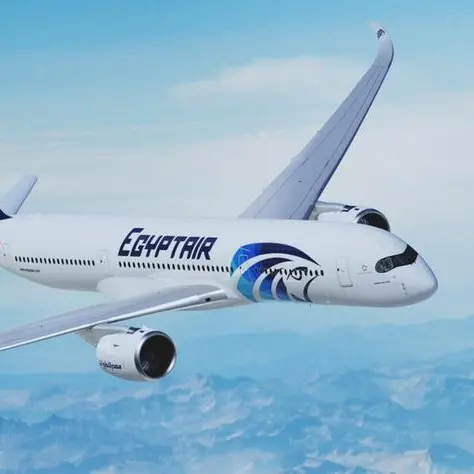PHOTO
* To spend $1.1 bln over 10 yrs on scholarships in Arab world
* Using profits, dividends from stake in Ghurair cos
* Comes after Saudi's Alwaleed pledges $32 bln to charity
By David French
DUBAI, July 7 (Reuters) - Prominent United Arab Emirates businessman Abdullah Ahmad al-Ghurair has donated more than $1 billion - a third of his business empire - to a foundation supporting education in the Arab world, a move highlighting growing philanthropy among the Middle East rich.
The establishment of the Ghurair foundation comes days after Saudi Arabia's Prince Alwaleed bin Talal said he was pledging around $32 billion of his wealth to good causes including charities working in healthcare, disaster relief and women's rights.
Both announcements were made during Islam's holy month of Ramadan, a period which promotes charity and thinking of those less fortunate through fasting, while the size of donations highlights the increasing wealth in the Middle East.
The Ghurairs are one of the leading merchant families in the United Arab Emirates, and their business interests are mainly split between two branches controlled by separate brothers. Abdullah's lineage runs banking, food, construction and real estate assets.
Abdullah is also the father of billionaire Abdulaziz al-Ghurair, whose roles include chief executive of Dubai's third-largest bank by assets, Mashreq
MASB.DU
, and head of the local banking federation.
Under the plan announced at a press conference led by Abdulaziz in Abdullah's absence, a foundation was being set up using profits and dividends from its portion of the Abdullah Ahmad Al Ghurair group of companies.
The foundation aims to spend 4.2 billion dirhams ($1.1 billion) over the next 10 years backing at least 15,000 scholarships initially for UAE nationals, before being expanded to include Arab expatriates living in the Gulf state and Arabs elsewhere in the Arab world.
The scholarships would mostly be for high-quality university education in a student's country of residence, although for UAE nationals it would be for private school education between grades 6-12 as the government already supplies its citizens with generous scholarships for college, said Abdulaziz, who will chair the foundation's board of trustees.
"People drop out of high school because they don't have the funding to go from a small village to a big city where the best universities are," Abdulaziz told reporters.
"This is a waste for the Arab world where such brilliant students don't have access to proper college education."
(Writing by Tom Arnold; Editing by Andrew Torchia and Clelia Oziel) ((Tom.Arnold@thomsonreuters.com; +97144536265; Reuters Messaging: tom.arnold.thomsonreuters.com@reuters.net))
* Using profits, dividends from stake in Ghurair cos
* Comes after Saudi's Alwaleed pledges $32 bln to charity
By David French
DUBAI, July 7 (Reuters) - Prominent United Arab Emirates businessman Abdullah Ahmad al-Ghurair has donated more than $1 billion - a third of his business empire - to a foundation supporting education in the Arab world, a move highlighting growing philanthropy among the Middle East rich.
The establishment of the Ghurair foundation comes days after Saudi Arabia's Prince Alwaleed bin Talal said he was pledging around $32 billion of his wealth to good causes including charities working in healthcare, disaster relief and women's rights.
Both announcements were made during Islam's holy month of Ramadan, a period which promotes charity and thinking of those less fortunate through fasting, while the size of donations highlights the increasing wealth in the Middle East.
The Ghurairs are one of the leading merchant families in the United Arab Emirates, and their business interests are mainly split between two branches controlled by separate brothers. Abdullah's lineage runs banking, food, construction and real estate assets.
Abdullah is also the father of billionaire Abdulaziz al-Ghurair, whose roles include chief executive of Dubai's third-largest bank by assets, Mashreq
Under the plan announced at a press conference led by Abdulaziz in Abdullah's absence, a foundation was being set up using profits and dividends from its portion of the Abdullah Ahmad Al Ghurair group of companies.
The foundation aims to spend 4.2 billion dirhams ($1.1 billion) over the next 10 years backing at least 15,000 scholarships initially for UAE nationals, before being expanded to include Arab expatriates living in the Gulf state and Arabs elsewhere in the Arab world.
The scholarships would mostly be for high-quality university education in a student's country of residence, although for UAE nationals it would be for private school education between grades 6-12 as the government already supplies its citizens with generous scholarships for college, said Abdulaziz, who will chair the foundation's board of trustees.
"People drop out of high school because they don't have the funding to go from a small village to a big city where the best universities are," Abdulaziz told reporters.
"This is a waste for the Arab world where such brilliant students don't have access to proper college education."
(Writing by Tom Arnold; Editing by Andrew Torchia and Clelia Oziel) ((Tom.Arnold@thomsonreuters.com; +97144536265; Reuters Messaging: tom.arnold.thomsonreuters.com@reuters.net))





















